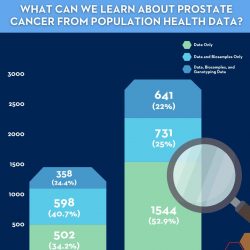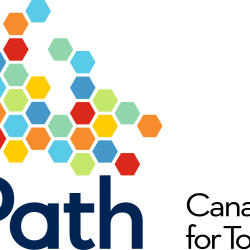Read the original news release from the Government of Canada Toronto, Canada, September 23, 2025 – What if Canada had a research platform ready to track the next pandemic, study the effects of climate change on health, and help explain rising cancer rates in young people? With a $3 million grant from the Canadian Institutes of Health Research (CIHR), CanPath is that platform. Awarded through CIHR’s Pandemic Research Platforms Interim Funding opportunity, this two-year operating grant supports CanPath’s unique ability to generate fast, meaningful insights during public health emergencies. This work goes far beyond pandemics: it also aims to tackle broader crises like climate-related health risks and early-onset cancer. “This grant strengthens CanPath’s ability to respond quickly and effectively to future public health emergencies,” said Dr. Jennifer Brooks, CanPath’s Executive Director. “Our platform is built for this kind of work, with hundreds of thousands of Canadians already engaged, linked health records, and long-term follow-up in place.” The grant is led by Dr. Brooks and Dr. Philip Awadalla, CanPath’s National Scientific Co-Director, with a national team of co-investigators. The funding is held at the Dalla Lana School of Public Health, University of Toronto. “CanPath is known as a research resource, but now in its prime, it’s built for resilience,” said Dr. Awadalla. “We’re proud to continue this work with our partners and support Canada’s preparedness for emerging diseases in a changing world.” Canada’s largest health study is ready to respond CanPath, the Canadian Partnership for Tomorrow’s Health, is the country’s largest population health cohort, with more than 330,000 participants recruited from all 10 provinces. Participants have consented to long-term follow-up, data linkage, and future contact, providing a uniquely flexible and future-ready research platform. During the COVID-19 pandemic, CanPath rapidly deployed a national antibody study, linked testing data to participant records, and surveyed participants in real time. Results were shared widely with researchers, policymakers, and the public and featured by Global News, National Post, and The Globe and Mail. “CanPath’s COVID-19 response showed how powerful our model can be,” said Dr. Victoria Kirsh, CanPath National Scientific Coordinator. “We were able to launch surveys, test for antibodies, and communicate directly with participants in record time. This grant ensures we can build on that success, strengthen our partnerships, and stay ready to support evidence-based action when it matters most.” What this funding supports Through this grant, CanPath will continue to: This work builds on CanPath’s strategic partnerships with: Together, these partnerships strengthen CanPath’s role as a responsive, data-rich platform that serves researchers, funders, policymakers, and communities alike. Ready for the next challenge This grant builds on CanPath’s proven ability to act fast, scale up, and generate real-world impact. In future public health emergencies, CanPath is ready to: CanPath’s national team of investigators—including Drs. Trevor Dummer, Simon Gravel, Vikki Ho, Victoria Kirsh, Guillaume Lettre, Grace Shen-Tu, Jared Simpson, Ellen Sweeney, Megan Vanstone, Donna Turner, and Robin Urquhart—brings deep expertise across research fields and geographies. “This isn’t just about the next pandemic,” said Brooks. “It’s about being prepared for the full range of health challenges we’re facing, from chronic diseases—including cancer—to environmental change. This grant helps us keep Canada at the forefront of evidence-based, equitable research.” Pandemics don’t wait, and thanks to this investment, neither will CanPath. For more information, please contact:Megan FlemingCommunications & Knowledge Translation OfficerCanadian Partnership for Tomorrow’s Health (CanPath)info@canpath.ca









